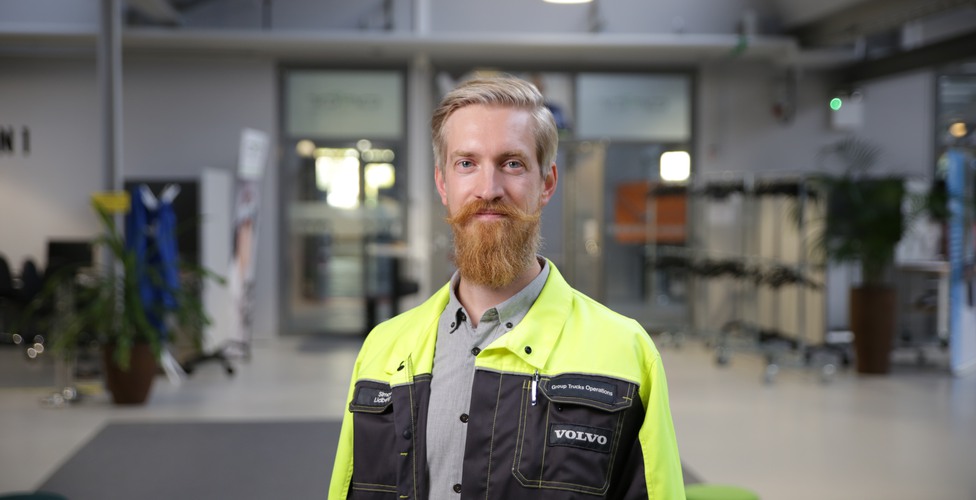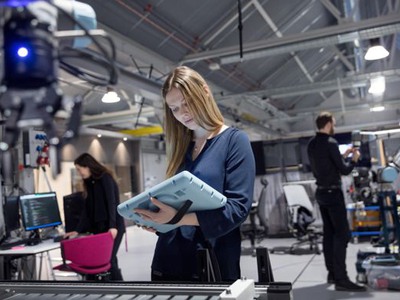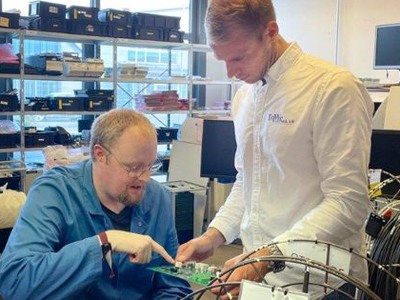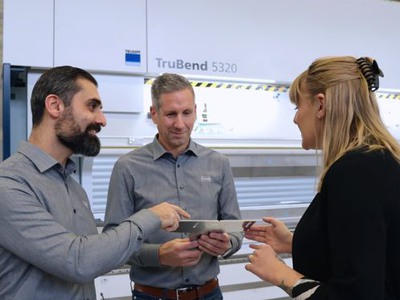Volvo is about to start using a decision support system that will help them reduce their environmental impact when manufacturing engines. The first plant to implement the system is Volvo Powertrain in Skövde, after which it will be rolled out to their other factories worldwide. The system is developed by Simon Lidberg, an industrial PhD student at the University of Skövde.

Simon Lidberg is an industrial PhD student in the Smart Industry Sweden research school and is affiliated with the research profile Virtual Factories with Knowledge-Driven Optimization (VF-KDO).
Modern factories are highly complex. New customer demands, products, and an increasing pressure to reduce emissions require quick transitions and flexibility. Today, simulation and optimisation are often used to improve specific parts of a factory, such as production lines, but local improvements do not always make a difference for the entire system. This is where Simon Lidberg’s research comes into play.
A Recipe Book for Making Improvements
"I have researched how simulation and optimisation can be used to improve entire factories. The idea is to create a kind of recipe book that shows where, in what order, and how much you should improve different machines and equipment to achieve the best possible results for the whole factory," says Simon Lidberg.
The improvements can be tailored to the goals that factory management has for the system. It could involve producing more products, reducing lead times, lowering energy consumption, or a combination of these objectives. The aim is to find the best way forward to achieve the desired outcomes.
Important for Volvo
This research is highly beneficial for Volvo. Malin Hane Hagström, Head of Strategy and Sustainability at the Skövde factory, explains that the decision support system is now being used to increase productivity, and she sees great potential for using the system to optimise sustainability in terms of energy, water, sand, and more.
"We have large flows where it is impossible for the human brain to get an overview. Since we have limited resources, it is important for us as management to be able to prioritise improvement efforts correctly and with a focus on the flow," says Malin Hane Hagström.
Reducing Environmental Impact
By using resources correctly, the company can become more efficient. When processes are more efficient, fewer resources are needed to produce the products, which reduces the environmental impact.
Simon Lidberg’s thesis consists of two parts. The first part addresses a method for simplifying simulation models, making it easier to optimise both factories and entire production chains. The second part describes the decision support system that helps factory management prioritise different improvements.
First Skövde, then the World
"The system provides step-by-step instructions on how they should best prioritise various improvements to achieve their goals, such as increasing production or reducing energy consumption. It can be used by factory management, engineers, and production staff who want to plan, implement changes, and evaluate the effects of local improvements on the factory’s performance," says Simon Lidberg.
The Skövde plant will be the first to use the decision support system, after which it will be introduced in other factories globally.
Simon Lidberg will defend his thesis "Decision Support Architecture: Improvement Management of Manufacturing Sites Through Multi-Level Simulation-Based Optimization" on October 18 at the University of Skövde, ASSAR Industrial Innovation Arena.




